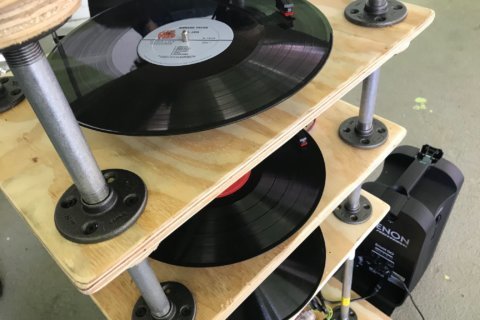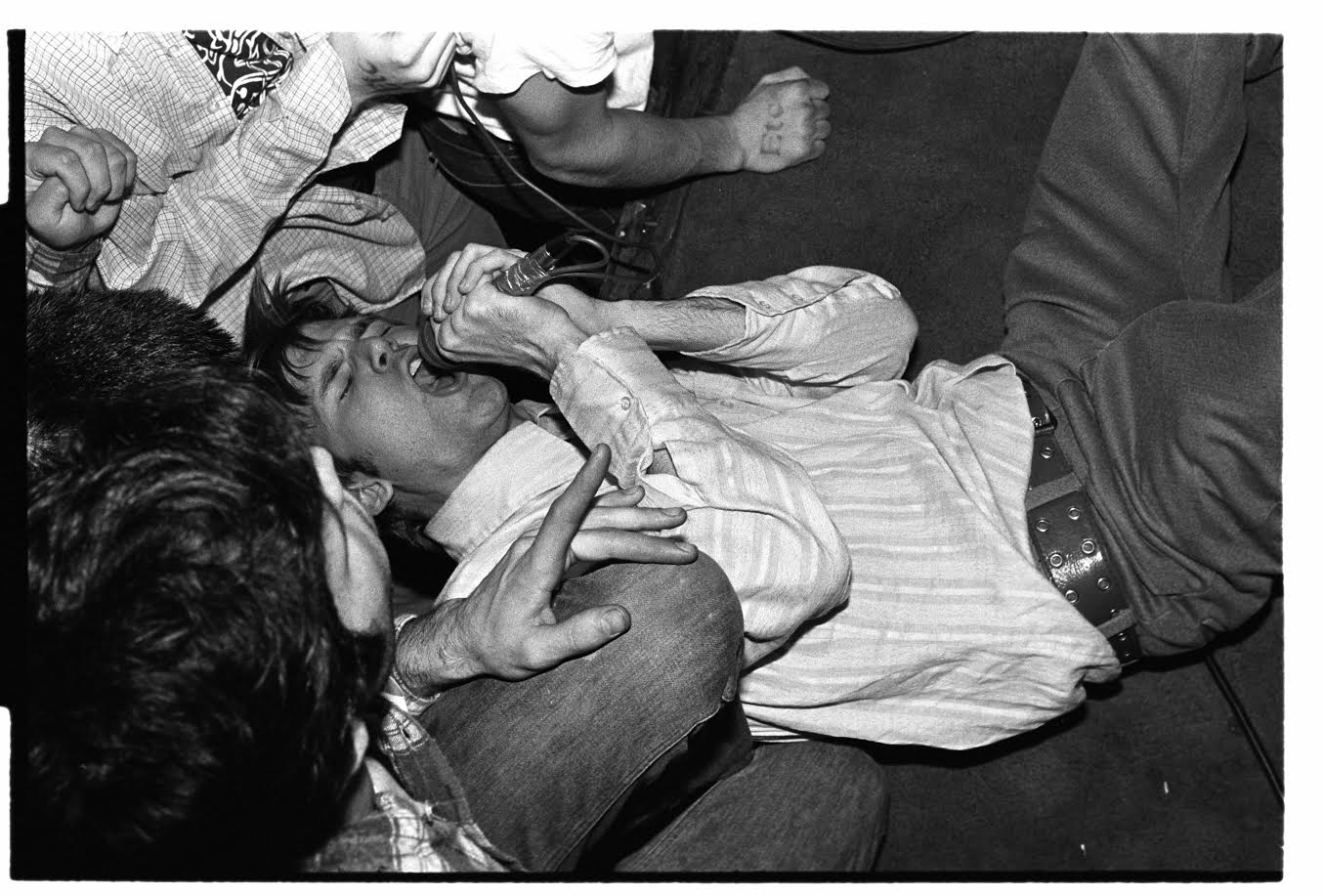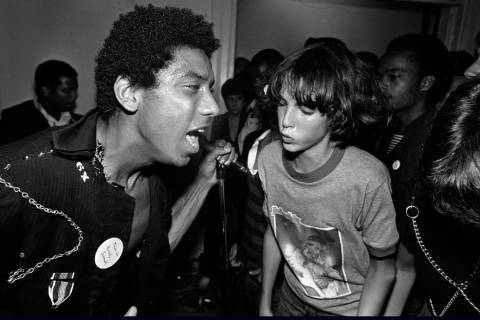
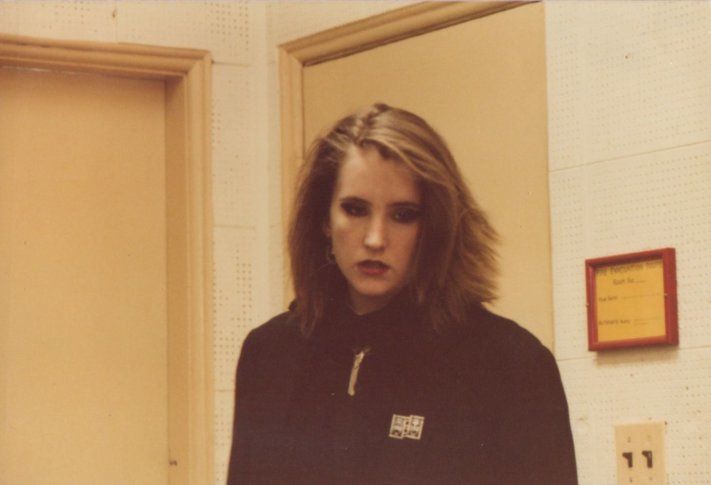
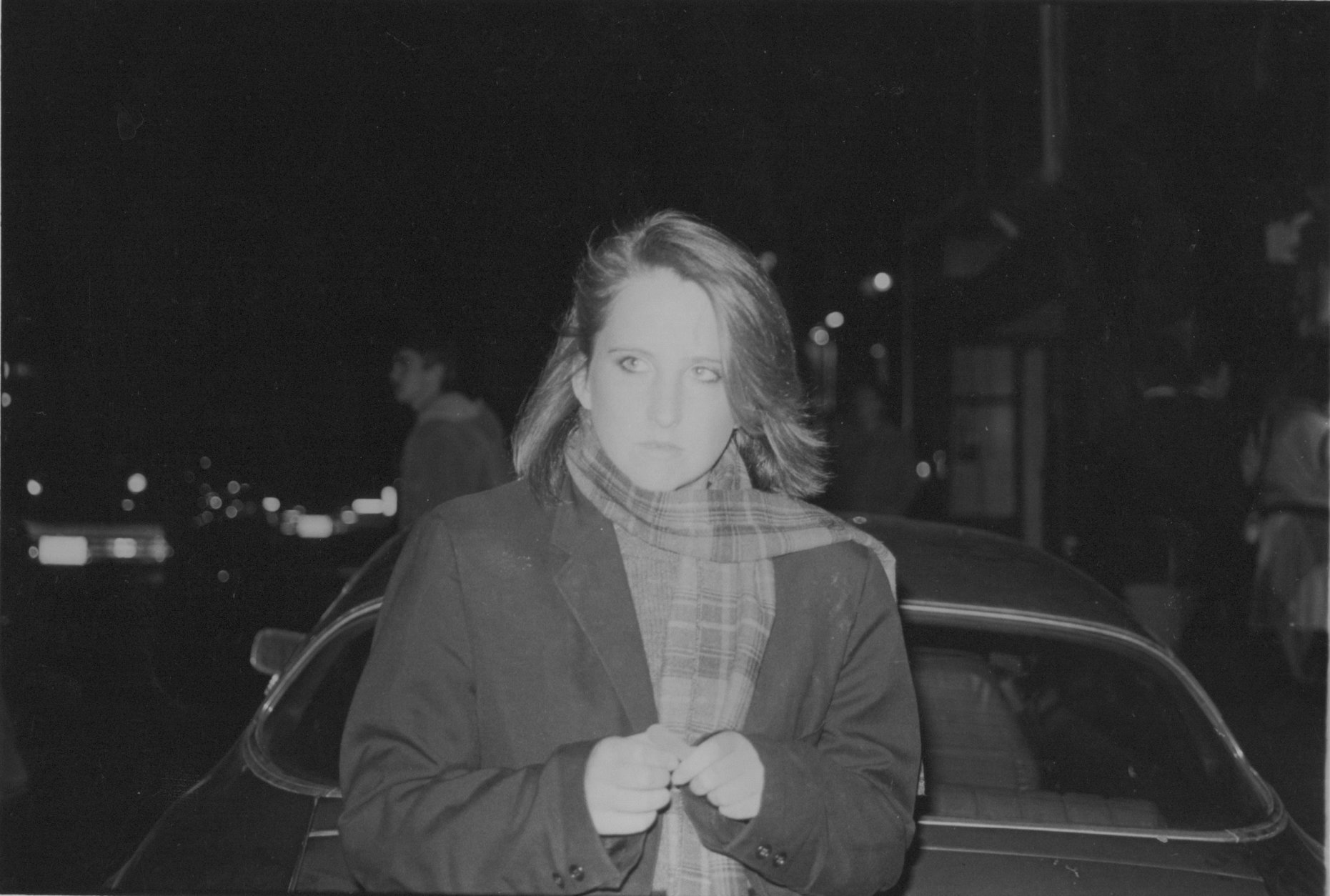
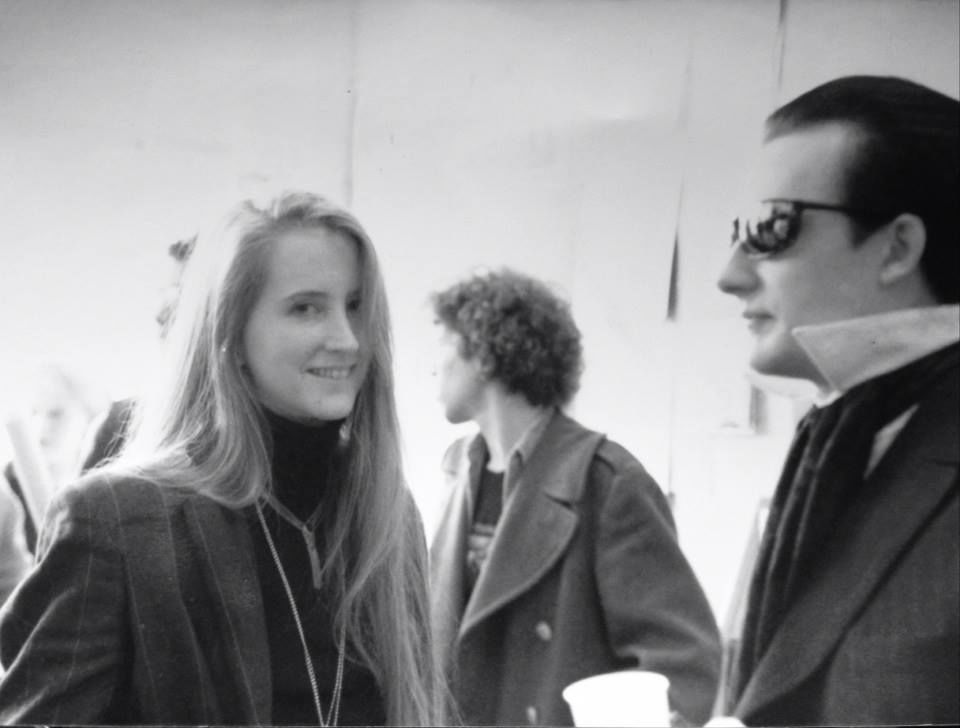
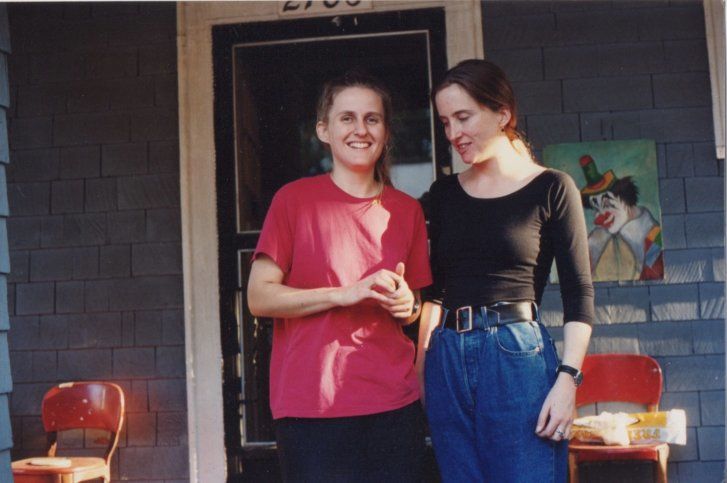

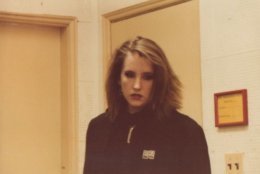


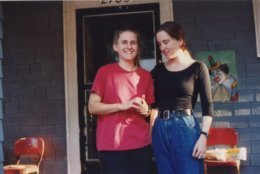
WASHINGTON — Anna Connolly didn’t really want to answer the first question of the interview.
Interestingly, in her upcoming debut album “After Thoughts,” out Oct. 12, Connolly shares some of her most intimate moments. But she wasn’t comfortable talking about one piece of her biographical information: her age.
The anachronism seemed somewhat fitting, since Connolly’s life has spanned both a time when it was impolite to ask a woman her age and the groundbreaking beginnings of punk rock.
Though prickly about seeing a sentence reading “Connolly, (insert age here),” she’s of a well-respected vintage, born around the time the Rolling Stones released “Their Satanic Majesties Request.”
Unlike many new (and younger) artists, Connolly has a unique vantage point, having shared history with the young musicians and personalities who helped form D.C.’s hardcore punk rock scene in the early 1980s.
But now, as a mother with two teenage boys, Connolly is set to release her first record in a musical environment that has changed considerably since the days when Dischord Records had just launched.
Get up and go
Connolly moved to D.C. from Los Angeles in April 1981, at 14 years old, with her divorced mother and slightly older sister, Cynthia.
“Within a couple days, we met a lot of like-minded people who went to record stores in Georgetown,” Connolly said, including D.C. punk consigliere Danny Ingram, who worked at Orpheus Records on M Street.
Ingram remembered meeting Connolly and her sister.
“Coming from Los Angeles, they had that punk-rock exoticness of being from a place that also had an exploding scene,” Ingram said. “Anna, from day one, always struck me as really smart and not a little bit dangerous — but in a good way.”
Connolly isn’t surprised. “I think we were a bit of a kind of curiosity, because we were these young girls who had seen Circle Jerks, Black Flag and The Go-Go’s,” she said.
As the mostly male “Georgetown Punks” scene gathered momentum, Ingram remembered why the sisters stood out.
“She and Cynthia were — and are — quite beautiful. Both of them are very talented. But, also, very different,” he said.
Soon after arriving in D.C., Connolly made an important connection.
“I remember [local musician] John Falls taking me on one of the 30s buses up Wisconsin Avenue, and taking me to Beecher Street for the first time to meet Alec [MacKaye] — I don’t think Ian was home at the time,” she said.
Ian MacKaye and his brother, Alec, were early stalwarts of the D.C. punk scene. In 1980, MacKaye and bandmates Jeff Nelson and Nathan Strejcek formed Dischord Records to release their rough and revolutionary “Teen Idles” EP.
And Connolly was in the center of it.
“Everybody called the MacKaye home ‘Beecher Street.’ It was a very welcoming house,” Conolly said. “The parents liked having lots of kids over. It was a place where you just show up and walk in the door without even knocking.”
‘Ian wants to talk to you’
“One of my earliest encounters with Ian was pretty soon after we moved here, and I had actually run away from home,” Connolly said.
“I went to a club or a bar in Georgetown — back when it didn’t matter how old you were — I guess, because I was really young,” she said. “John Stabb [the late singer of Government Issue, who died in 2016] said, ‘Everybody’s wondering where you are, and your mom is really worried about you.'”
And, then, Stabb said: “Ian wants to talk to you.”
“I knew what he wanted to talk about,” Connolly said. “And, it was really just because of Ian that I went home, because he talked with me and convinced me to come stay with him at Beecher Street for a few days, and then he brought me home to my mother.”
Decades later, Connolly learned that MacKaye’s mother referred to Connolly as “the runaway girl” in her journal — which she borrowed for her “Runaway Girl” record label.
“Even at age 19, Ian got me to do something that probably nobody else would have been able to,” Connolly said. “He definitely had a charisma and natural ability to corral me, and get me to do the right thing.”
“And not long after that, Minor Threat started practicing in our basement,” she added
Connolly said her mother’s house, near American University, sat on a strangely-shaped lot that apparently didn’t have any neighbors. With the low ceilings and a dirt floor in the Connolly basement, Minor Threat honed their breakneck sound, with Ian MacKaye’s vocals, Nelson on drums, Lyle Preslar on guitar and Brian Baker on bass.
“My mom was at work all day and didn’t care, so it became a spot where people would practice,” Connolly said.
Connolly’s photo of the band sitting on a curb, taken in front of the garage of Strejcek’s mother’s house, was on the back of Minor Threat’s iconic 1981 “In My Eyes” EP.
Cynthia Connolly created the black sheep logo on the band’s 1983 album, “Out of Step.”
At the time, despite being immersed in D.C.’s “do-it-yourself” inner circle, it never crossed Connolly’s mind to join a band.
“Music was important to me, but it just didn’t dawn on me to try it,” she said. “We were just teens, hanging out, going to shows and working at Olsson’s Record Store.”
But, at 14-years-old, she went on a Midwest tour with Minor Threat.
What did her mother think?
“I think my mom was very enamored by Ian’s non-drinking stance,” Connolly said. “Cynthia and I have an older brother who passed away recently who had a big drinking and drug problem, and that seemed to be the culture I was in back in L.A.”
MacKaye’s “straight edge” credo eschewed drugs, alcohol, tobacco and casual sex.
“When my mom met Ian, and, of course, when Ian brought me home when I ran away, she really trusted him and respected him,” Connolly said. “Still, it is a little surprising in hindsight that she let me do this.”
Think again
Eventually, in 2008, Connolly finally picked up a guitar. And, it happened just as her marriage was ending.
“I had two really, really young sons. I had this idea that if I got a guitar, I could somehow entertain them, or this would be good for them if I could sing them songs. So, it really came out of parenting,” she said.
Connolly said she “got a cheap guitar, at a store on Connecticut Avenue, just south of Dupont Circle, on the second floor,” and took group guitar lessons through Arlington County.
“I’m not sure why I thought it was a good idea — my kids couldn’t care less,” she said, smirking. “But, I enjoyed playing.”
And though the punk rock songs she had absorbed in her teens and 20s were written about young rage, Connolly began writing her own lyrics, starting with what she knew.
“A lot of it is related to relationships, which is definitely connected to the fact that I’m single,” she said.
With the experiences of juggling motherhood, supporting a family and dating, Connolly chooses to share her reality with an honesty that is both disarming and, at times, difficult to listen to.
The first single from her album, “21,” describes finally being alone with someone she had longed for, before he said something along the lines of “I wish I had dated you when you were 21,” but using a different word than “dated,” in the most unfeeling, dismissive, gut-punching way possible.
Yet, she chose to stay with him.
“People have commented on me making myself vulnerable in my songs. I guess, honestly, it’s hard for me to imagine what else to sing about,” Connolly said.
When first asked if she felt songwriting was a way to deal with any #MeToo feelings she may have had, Connolly quickly dismissed the question, saying, “I don’t have any #MeToo moments.”
But then, she had reflected on how #MeToo — at least the emotional part — might be at the root of her lyrics.
“I’ve put myself in a lot of positions where bad things could have happened to me — going on tour with punk rock bands, and when I was young in clubs — so I feel quite lucky that in a physical way, I’ve never been assaulted, and it’s kind of surprising, considering all the things I’ve done,” Connolly said.
Through the years, Connolly found herself in unhealthy relationships and, in some cases, was willing to continue in them.
“People’s notion of normal can be adjusted pretty quickly, so I think that’s why people stay in abusive relationships, or tolerate abusive situations, whether it’s physical or emotional,” Connolly said. “You start to think that’s normal, or you make excuses for someone, or you rationalize it because there are other things about it that are good.”
She added, “I think that happens a lot. Someone can have a lot of great things in their character and then have some other pretty serious flaws. And, the two things can coexist in one person, right?”
For someone who’d rather not talk about her age but is willing to freely discuss the heartbreaking insult she endured in “21,” Connolly’s incongruity becomes a bit more understandable.
“That person did say that to me, and it was awful,” she said. “It still kind of upsets me now, to think I tolerated that, or that I still love….” Connolly caught herself before finishing the word and changed it to: ” … still made excuses for that kind of statement and stayed with somebody like that.”
“I was trying to show that nuance,” Connolly said. “To me, it makes it a bit more interesting as a story. It’s also the truth. I was trying to show both sides of something.”
Anna Connolly will play a record release show at Dew Drop Inn, in Washington, D.C., on Oct. 12.



